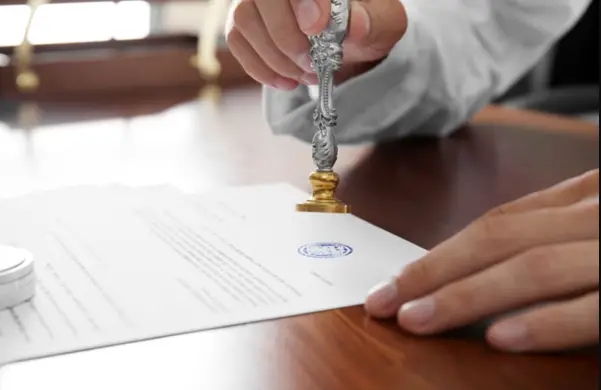Notarized translations have strict rules in every nation. Translations that are not notarized usually are left with the language translation company. Even though the content of the translation is the same as those of the document it was translated from, instances arise where personal style or tone could alter the final translation.
The essential nature of accurate translation is understood by authorities or courts where translations are required. The need to comply is significant for language translation companies. If you need a necessary translation in court, only a translation by professional translators from notary translation services will be accepted. This is because they can be held accountable for their translations.
Notarized Translation for Business
The notarization process is intended when the document is used for public, private, or official state bodies. For instance, you need a notarized English translation of documents. Notarization is a form of certification or confirmation of the signed translator on the translated work. Before performing the notarization, the official agency should prepare the translation document. The document must contain information such as the name of the document issuer, the date of document preparation, and the name of the place where the document was prepared, issued, and signed. A signature or official seal of the translator, says The Spanish Group.
For several international business activities, notarization is necessary. Any foreign legal or official document must have a notarized translation before it concludes. Notarization is one of the easiest methods of certifying a business translation. Examples of documents that need a notarized business translation include property deeds, business contracts, court orders, adoption agreements, trial transcripts, school transcripts, birth certificate translation, personal documents, foreign language documents, etc.
When do you need a translation notarized?
There are instances when you will need a notarized English translation. Some of these instances include;
- Family papers such as immigration papers, naturalization papers, and adoption papers.
- Documents related to education, including diplomas or academic degrees.
- Court orders translation such as wills and judgment translation.
- Translation of legal certifications, including divorce, marriage, and birth certificates.
Locating a translator
It isn't easy locating the exemplary notary translation service to translate your document correctly. You will need to trust the person, and they should be able to give you a translation with complete accuracy that t. Your claim or case could be jeopardized if you cannot get a good translator.
Some critical factors to look for when searching for a translator:
Look for a native speaker translator of the target language.
You cannot substitute any other thing for comprehension and speaking at the mother tongue level. If you want to translate a document to French, then go for a translator that is a native French speaker.
Look for a translator with related field experience.
Apart from being a native speaker, the translator should be very familiar with the document's subject matter you want to translate. For instance, if you require translation of documents for immigration, you should hire an experienced translator in immigration law.
Other expert translators should check your documents.
It is advantageous for another person to help you proofread the document. If the document is to be used in a court, you should have an expert translator proofread it to ensure it is translated correctly. With this, you will avoid minor errors that could make your claim or case be denied.
The translator should respect your confidentiality.
Sensitive information is usually part of court documents that are given to authorities. The status of your family, information about your organization, or other personal information is revealed. It would be best if you were sure the translator would not disclose personal information in your document.
Sensitive information is usually part of court documents that are given to authorities. The status of your family, information about your organization, or other personal information is revealed. You should be sure that the translator will not disclose personal information in your document.
Your future and privacy depend on having your translations done by a professional translator. Your case will be jeopardised if you do not find a good translator to do your translation jobs. The best way to have your notarized English translation is to go with a company that can provide high-quality notarized translation services.
0







